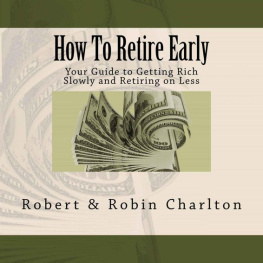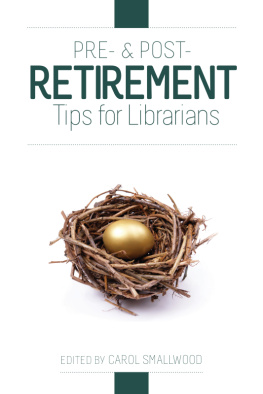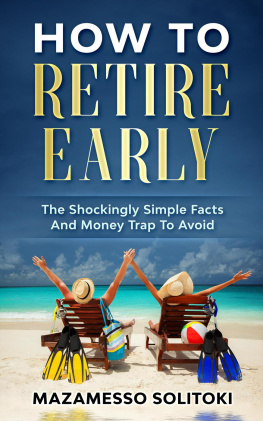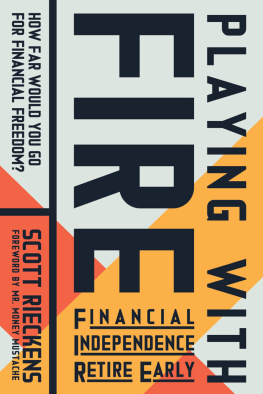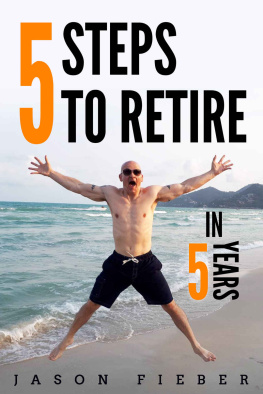A t the age of 28 my wife and I had just $16.88 to our name. I still have the checkbook showing that disheartening little entry next to the date of August 15, 1991. We owned no home. We were renters in an apartment in Boulder, Colorado and we were getting seriously worried because our monthly rent had just shot up and we had no clear way of paying it. I was unemployed and couldnt even find temp work. We had college and car loans to pay off. My wife Robin was working as a travel agent for the painfully low sum of $14,000 per year. She was frazzled enough about our financial situation that she was talking about taking on a second job at a local convenience store just to make ends meet.
A t least she had a job. Since moving from Boston in January 1990, the best I had been able to manage was temp work as a word processor making $7 per hour. I had a string of failed career attempts behind me and no clear career path in sight. I was six years out of college and going nowhere fast. How had I managed to make so many wrong turns since college? Was I ever going to turn things around? Sometimes it seemed like the answer the universe was giving me was a resounding no.
Is Retiring Early Really Possible?
We begin our book at the financial low point of our lives to make it clear that even from unpromising beginnings such as these it is possible to get back on track and retire early. Not through get-rich-quick schemes but through simple hard work and consistent savings. No matter what your starting point, no matter how hopeless things may look right now, you can change your life around and set yourself on a path towards financial independence.
And it doesnt have to take forever. We did it in just 15 years, beginning in 1992 when we bought our first home and ending in 2006 when we walked away from our full-time jobs for the last time, hardly able to believe it ourselves. We were 43 years old at the time and had managed to scrimp and save our way to nearly a million dollars enough to buy us a simple early retirement.
Frankly, if we can do it, so can you. This book is designed to show you how. It proposes a get rich slow approach to early retirement that has nothing to do with market timing, day trading, options, or high-risk investments of any kind. Rather, it provides practical advice on how to set a realistic retirement goal 15 or 20 years down the line and take the necessary steps to achieve it.
These steps are surprisingly simple. They don t require an advanced degree in business or finance. Just about anyone can do it, including you, as long as you take a self-disciplined, slow-and-steady approach to investing.
So l ets get started by answering a few questions you may be wondering about.
Who Is This Book For?
This book is primarily aimed at hopeful early retirees in their twenties and thirties. However, anyone including those in their forties or early fifties who are just getting started saving for retirement in a meaningful way can use the concepts in this book to retire in 15 to 20 years. In fact, latecomers to the game may be able to retire in just 10 years. Why? Because they may already have a higher salary, more home equity, and more money set aside than younger investors, giving them a leg up. Empty nesters may also have fewer distractions, financial and otherwise, allowing them to focus in on their retirement goal with greater intensity.
If you already have a high-powered salary and are able to live very well in the present while also investing large sums of money for the future, then you probably dont need this book. In fact much of the advice it offers may sound strange to your ears. Why bother making sacrifices and getting rich slowly if you are already on the fast track to financial freedom?
But for the rest of us, its good to know there is an alternative approach to achieving financial independence. It takes a slower track but gets you there all the same, and we think a slower track is much better than no track at all.
Why All the Specifics?
We intend to be as up-front and honest with you as possible in this book and not sugar-coat the truth. We lay our own finances bare, showing you how we got where we got and how long it took. We give you hard numbers on what we earned, how much we saved per year, and how much we spend per year now that were retired. Well share with you the simple Excel spreadsheet we set up to track our investments. Well tell you where we went wrong and what we would have done differently if we had it to do over.
Of course the specifics of your own situation will differ from ours, but our feeling is that the more concrete, quantifiable information you have, the easier it will be for you to plan your own early retirement. You can extrapolate from the specifics we provide and apply that information to your own situation. If you happen to live in a very expensive city like New York City or San Francisco, for example, you may have to compensate for the much higher cost of living there by adjusting our income and expense information upwards.
Are You Financial Experts?
We arent financial experts but we do consider ourselves financially savvy. I passed the Series 7 Exam and actually worked a brief stint as a licensed stockbroker early on in my career before deciding to take a different tack. But we both learned the most about investing simply by doing it over the past two decades: what works, what doesnt work, whats the simplest approach, and what may sound good on paper but isnt so good in practice. We made enough mistakes along the way to serve as human guinea pigs for what doesnt work, and we share those mistakes with you in this book so your own path can be a little easier.
Frankly, w e think we have something interesting to say not because were experts but because were not. Were ordinary people who set a long-term financial goal and achieved it. If youre looking for specialized advice from a financial guru, we suggest you look elsewhere. But if you want practical guidance with plenty of examples on how to retire early from people who have been where you are now, you may want to consider what we have to say. Were probably not all that different from you, and it can help to get the perspective of other travelers who have ventured down the same road youre thinking of taking.
Did You Have High-Powered Jobs?
I worked primarily as a technical writer and proposal coordinator in the aerospace industry, and my wife worked as a travel agent then as a registered nurse. Our jobs started off paying poorly and got better with time, as most peoples do, but neither would be considered high-powered. In fact our combined gross salaries for the 15 years from 1992 to 2006 averaged just over $89,000.

